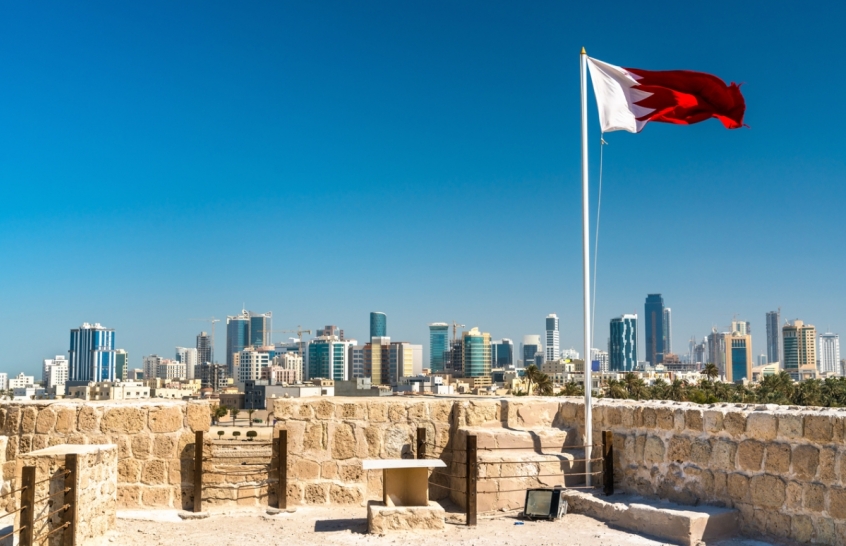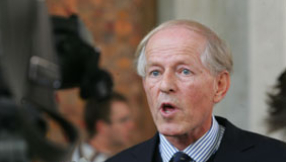
Pope Francis will become the first pontiff to visit the tiny island country of Bahrain, in the Persian Gulf, on Thursday, promoting his continuing message of fraternity, dialogue and peace with Islam.
The four-day apostolic visit will occur "under the sign of dialogue," Francis said during his weekly Angelus prayer in St. Peter's Square on Sunday. While Catholics make up a small percentage of Bahrain's population — an estimated 80,000 to 100,000, almost all transplants from other nations, among 1.7 million residents — the pope's visit carries a broader message, to the Muslim communities in the country, split between the Shiite and Sunni sects, and the Islamic world.
The papal trip "is an invitation to dialogue, an invitation to encounter between East and West, in a reality, such as that of Bahrain, which is a multiethnic, multicultural and multireligious reality," said Cardinal Pietro Parolin, the Vatican secretary of state, in an interview with Vatican Media.
Parolin explained that the pope's visit to Bahrain is part of his message for religions to become actors for peace, enshrined in the Document on Human Fraternity that the pontiff signed in 2019 in Abu Dhabi with the prominent Egyptian Sunni cleric the grand imam of Al-Azhar, Ahmed al-Tayeb.
Fraternity is the "red thread" that tied together Francis' visits to Kazakhstan, Iraq, Morocco, Egypt, Azerbaijan and the Arab Emirates, Parolin said.
"This red thread is simply to say that between God and hatred, between religion and violence, there is an absolute incompatibility, there is an impossibility of any contact and any conciliation, because whoever accepts hatred and violence distorts the very nature of religion," he added.
Francis will meet Bahrain's King Ḥamad bin ʿĪsā Āl Khalīfa, who issued an initial invitation to the pontiff, which was then made official by Bahrain's Catholic community. The pope will meet with local authorities at the Sakhir Royal Palace in Awali upon his arrival.
Human rights activists have called on Francis to use his platform while visiting Bahrain to condemn unjust imprisonments and the government's use of the death penalty, as well as to defend basic human and civil rights. While Parolin said that Francis will interpret "the profound expectations of so many people who do not see their rights respected," the cardinal also praised Bahrain's constitution for "avoiding any discrimination."
Questions regarding human rights will "certainly be on the pope's agenda," said Bishop Paul Hinder, the apostolic administrator of Northern Arabia, whose oversight also includes Kuwait and Qatar. But it is unlikely that the pope will challenge the Bahraini government openly on the death penalty and more likely he will instead take a more personal approach.
On Friday, the pope will likely focus on Christian and Muslim dialogue, with Francis making the closing remarks at the Bahrain Forum for Dialogue: East and West for Human Coexistence, before meeting privately with al-Tayeb.
The pope will then meet with members of the Muslim Council of Elders, an organization that promotes religious tolerance and dialogue, and oversee an ecumenical meeting in the year-old Cathedral of Our Lady of Arabia in Awali. Francis donated the foundation stone of the cathedral himself and the meeting is viewed as a coronation of his ecumenical efforts in the region.
"Pope Francis will continue in his effort to make way, as much as possible, with different realities in the Muslim world," Hinder said.
"The pope would like to be in contact with everyone and not exclude anyone," Hinder said, underlining the importance for monotheistic religions to come together for shared goals, especially on the environment.
The bishop also noted that the trip will occur under the watchful eye of Bahrain's powerful and influential neighbors, the Sunni-majority Saudi Arabia and the Shiite-majority Iran. "I can't imagine that this trip will not catch the attention of Riyadh and maybe even Iran," Hinder said.
"I think the pope's brave steps will open doors," he added. "We don't know where they will lead in the end, but I hope it will contribute to finding solutions to conflicts in the region and possibly at the global level."
Francis' last two days will focus on encouraging the local Catholic community, which comprises a global mix of Eastern and Latin rites practiced in home countries of India, the Philippines and elsewhere.
More than 20,000 people from Middle Eastern countries are expected to attend Francis' Mass at the Bahrain National Stadium on Saturday. That same day, the pope will meet with students from the Catholic School of the Sacred Heart.
On his last day in the Middle Eastern peninsula, the pope will make his usual Sunday Angelus prayer with local bishops and priests in the northern city of Manama before hopping on the ITA Airways flight that will bring him back to Rome.
The message during the trip "is always the same," Parolin said. "In a world characterized by tensions, by contrasts, by conflicts, it's a message of unity, of cohesion, of peace."
© Religion News Service













